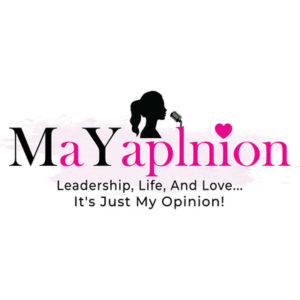Many people believe that self-awareness is the foundation for emotional intelligence. I think it is not only the foundation for EQ but also, it’s essentially the ability to truly know yourself as an individual and a leader. In my opinion, it seems that we all like to believe that we are self-aware but are we really? Well, there was a study done about this exact topic pertaining to leadership. When asking leaders if they believed if they were self-aware over 90% of them answered “yes.” However, when they were tested on how self-aware they truly were, only 10% were actually self-aware. Does this surprise you?
The results from the study were not shocking to me but they definitely inspired me to write about this topic and podcast about self-awareness again. I think we believe just because we recognize some aspects about ourselves that are negative and are willing to share them then we believe that we are self-aware. It seems that sometimes we believe that vulnerability equals self-awareness. I personally do not believe that to be true but I do not believe that you can be self-aware without being vulnerable. But, just because you are vulnerable, does not mean you are self-aware.
I know that might sound a bit confusing. Think about it like this, if you are a CEO and you share with your team that you are not the strongest in the creative design department. You are sharing a vulnerability about your skills and a weakness. Does this prove that you are self-aware though? Not entirely. Why? Because you may be completely unaware that you have difficulty confronting people or that you are not punctual to meetings. So, how can you ensure that you are self-aware as a leader?
Well, the great news for everyone out there is that self-awareness is something that we can all develop and grow. It’s just like exercising or practicing a skill. First, you need to identify your strengths and weaknesses though. At first, I recommend writing down all your strengths (I prefer to start with the positives always). Be specific about your strengths: what you’re good at and how you’re good at it. If it helps, give situations where you have used these strengths to show yourself the truth behind it. The next step is to open up about your areas of opportunities. Most people struggle with this part (hence the study 90% versus 10%) so just know that it is normal.
The best way to understand your areas of opportunity is to ask those around you. Ask your team for feedback, ask your supervisor for feedback, ask anyone who will give you feedback that can give value to your leadership role. Asking for feedback can be challenging for most in the beginning. Let the people you are asking know that you want it and you are open to it, and then, be open to it. That’s how you will receive accurate information about your areas of opportunity. When I first started as a leader, I did not ask for feedback it was just showered on me in hard forms of criticism. It took a toll on me and it is not my recommendation for delivery. However, I am now exceptionally receptive to feedback because of it but there are positive ways to learn how to receive feedback and asking for it is the best one in my opinion.
Another great way to learn about yourself and become even more self-aware are assessments. I enjoy giving these to my teams and sharing my own as well because then they know my strengths and areas of opportunities and vice-versa. The bonus to this practice is that it helps you build a well-rounded team. There are a lot of personality tests out there but one I am huge fan of is the DISC test. I find the accuracy of this test to be high for myself but for everyone that I have known to take the test. These types of tests are objective (if you answer honestly) and will also increase your ability to be self-aware.
As you work on your ability to be self-aware, you will develop as a leader. The more self-aware that you become the better you can serve others. Higher EQ means better leadership execution because we are more aligned with who we are and our emotions. In my opinion, you must begin working on yourself and self-awareness to better understand the full scope of emotional intelligence. It’s just like anything else in life it takes practice and you must understand yourself before understanding others.

